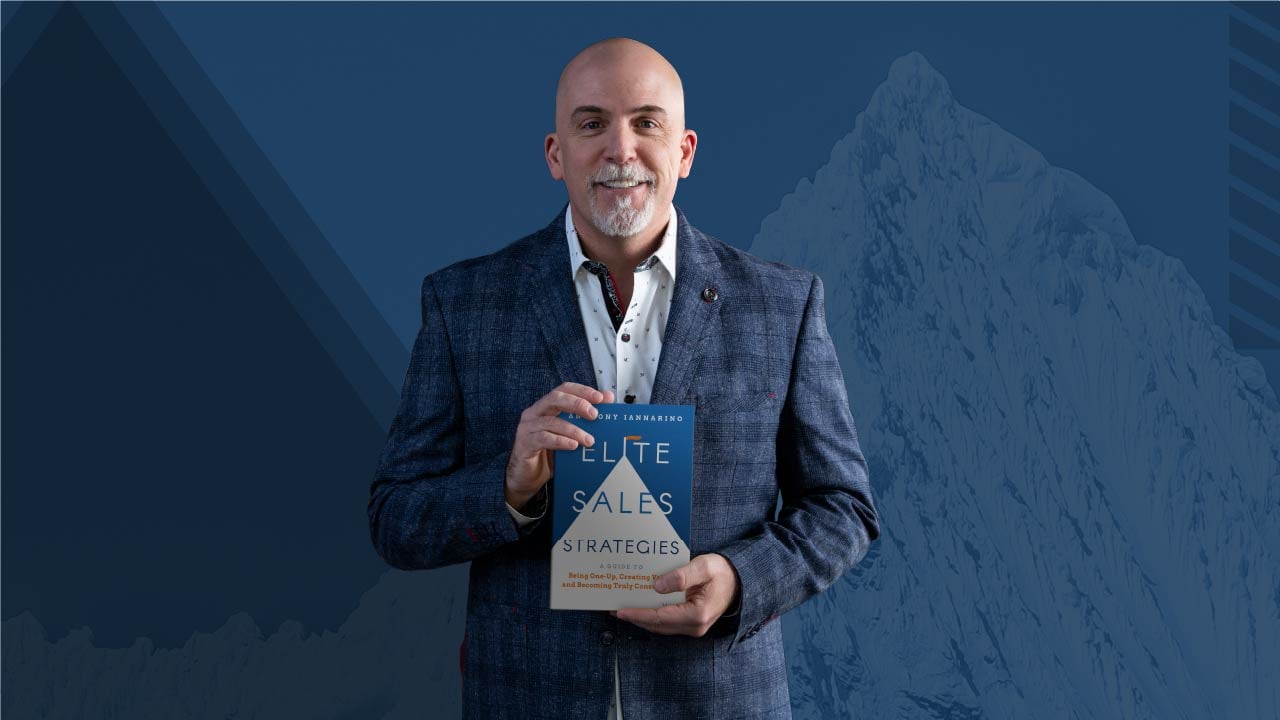In Elite Sales Strategies: A Guide to Being One-Up, Creating Value, and Becoming Truly Consultative, readers will find a simple definition of the concept we call One-Up. The term suggests that the salesperson has more knowledge and experience than their clients. This is especially true when it concerns making the right purchase decision and how best to improve results.
One test to determine if you are One-Up is to imagine that you are being paid by your prospective client. If someone is paying for help, they are likely to be One-Down. What follows here is a list of the benefits of being One-Up.
- Information disparity: When you possess information your client is missing, you help them by transferring your knowledge and experience. You cannot be One-Up without knowing what your clients need to know. This is a major strategy in the modern sales approach, and it allows you to be One-Up.
- Value Creation: When we talk about creating value, we mean helping our clients acquire the education they need to understand the decisions that will improve the outcomes they are pursuing. Being One-Up and creating value provides clients with a better sales experience, which helps you build a preference for yourself over a One-Down salesperson.
- Understanding of the client’s problems and pain points: When salespeople ask questions around client problems and their implications, they are often perceived as less than One-Up. To be One-Up, you must position yourself as someone with the experience to help the client succeed. This is an important start established at the beginning of the sales conversation.
- Role of an expert and authority: These first three benefits combine to position the salesperson as an expert and an authority. Lacking this positioning, a One-Down salesperson will have a difficult time competing with a One-Up salesperson. The great uncertainty businesses face, now and in the future, will have buyers looking for experts.
- A truly consultative approach: The questions you ask are important, but what most sales approaches are missing is a consultative approach. One-Up reps provide their clients with good counsel, advice, and recommendations. The One-Down salesperson’s advice amounts to “buy our solution from our company,” a pitch that can only disappoint their contacts.
- Questions that cause your client to discover themselves: Sales reps ask questions to understand and learn what they need to know to help their prospective client. The One-Up salesperson also asks questions that cause the client to learn something that will help them learn something about themselves and their company. See “One-Up Discovery.”
- Immediate differentiation: One of the major benefits of this approach is that it helps the client immediately recognize that the salesperson differs from the others they have interviewed.
- Competitive advantage: The One-Up salesperson has an extreme strategic advantage over a One-Down salesperson. One-Down salespeople because they cannot make the client prefer them.
- Ability to lead the client: A buyer or a group of buyers have the challenge of learning what they need to know. This is especially true when the decision they need to make is one they rarely must consider. The One-Down salesperson will follow the client’s lead, while the One-Up salesperson will facilitate their buyer’s journey, ensuring they complete it successfully.
- View of the industry: The One-Up salesperson has the business acumen to provide a view of their industry and the different models that companies use to deliver the value of their solution. Not only does this help the client, but it also eliminates competitors without ever mentioning them.
- Excellent reputation: Buyers and decision-makers find the One-Up salesperson the most educated, the most consultative, and the most helpful. Too many salespeople are One-Down, believing they are being helpful by asking about the client’s problem instead of explaining why the company is struggling.
- Confidence and certainty: A One-Down salesperson doesn’t provide the confidence that buyers need to buy from them. Nor do they provide the certainty clients need to decide and make the changes that will improve their results. Being One-Up provides both the confidence and the certainty that make it easier to buy.
Why Being One-Up Matters Now
More than any other time, your success will have less to do with your company or your solution. There are many good companies with great solutions. Now, the largest variable is the sales conversation. How you sell is a greater factor than what you sell.
When a salesperson is not an expert or an authority in their field, one who has done the work to be One-Up will have an easy time beating them for a client’s business. When your clients are seeking someone able to help them make change, improve their business outcomes, and provide certainty, they are looking for someone who is One-Up. The reason so many salespeople have trouble acquiring a second meeting is because the client recognizes the salesperson is woefully One-Down.
You Will Do the Work or You Won’t
You will either do the work to be One-Up or you won’t. You may believe you need not do the reading and research, organizing your knowledge and your experience, but your opinion will not cause your clients to look for a salesperson that is One-Up. If you are not One-Up, you are falling behind the evolution of B2B sales.
The 12 Benefits of Being One-Up in B2B Sales
These 12 benefits demonstrate what a modern sales approach looks like now. It is also a list of skills, strategies, and traits that suggest that a salesperson is One-Up. There are already “haves” and “have nots” in B2B sales. In the future, the spoils will largely go to the One-Up sales reps, something you can already see when you look at the best and most effective salespeople and compare them to their peers.
Pick up a copy of Elite Sales Strategies: A Guide to Being One-Up, Creating Value, and Becoming Truly Consultative, and send me your invoice, and I will send you the fillable PDF workbook.













Comments